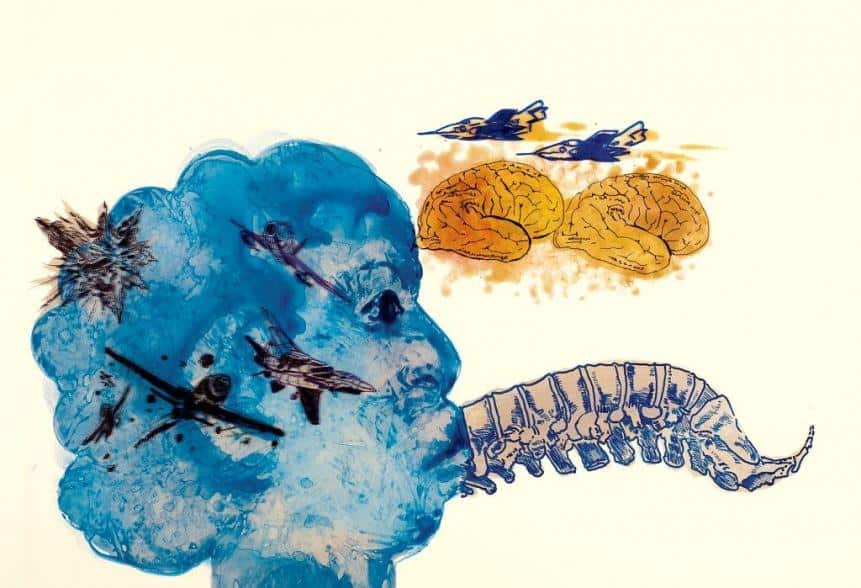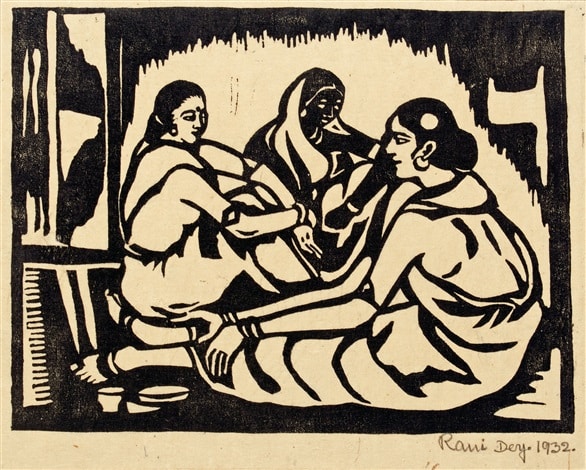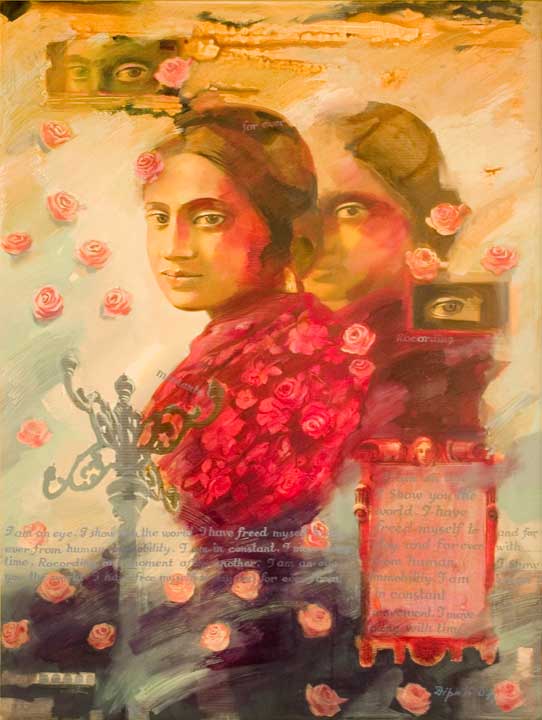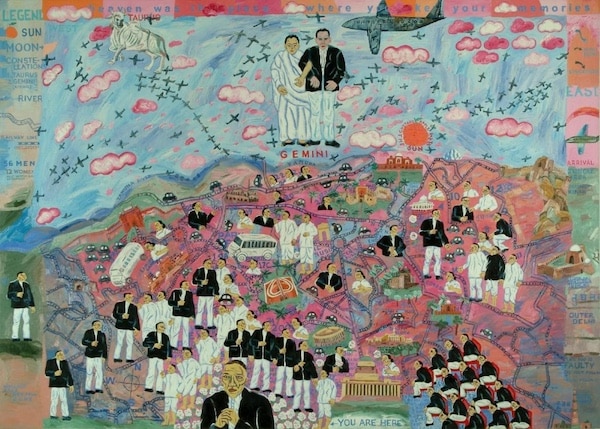Dear Friends,
Greetings from the desk of Tricontinental: Institute for Social Research.
On 8 August 2024, a 31-year-old doctor at the RG Kar Medical College in Kolkata (West Bengal, India) finished her 36-hour shift at the hospital, ate dinner with her colleagues, and went to the college’s seminar hall to rest before her next shift. The next day, shortly after being reported missing, she was found in a seminar room, her lifeless body displaying all the signs of terrible violence. Since Indian law forbids revealing the names of victims of sexual crimes, her name will not appear in this newsletter.
This young doctor’s story is by no means an isolated incident: every fifteen minutes, a woman in India reports a rape. In 2022, at least 31,000 rapes were reported, a 12% increase from 2020. These statistics vastly underrepresent the extent of sexual crimes, many of which go unreported for fear of social sanction and patriarchal disbelief. In 2018, the World Health Organisation (WHO) published an extensive study of violence against women using data from 161 countries between 2000 and 2018, which showed that nearly one in three, or 30%, of women ‘have been subjected to physical and/or sexual violence by an intimate partner or non-partner or both’. What this young doctor faced was an extreme version of an outrageously commonplace occurrence.

Nalini Malini (India), Listening to the Shades, 2007.
Not long after her body was discovered, RG Kar College Principal Dr Sandip Ghosh revealed the victim’s name and blamed her for what had happened. The hospital authorities informed the young doctor’s parents that she had committed suicide. They waited hours for the authorities to allow a post-mortem, which was done in haste. ‘She was my only daughter’, her mother said. ‘I worked hard for her to become a doctor. And now she is gone’. The police surrounded the family home and would not allow anyone to meet them, and the government pressured the family to cremate her body quickly and organised the entire cremation process. They wanted the truth to vanish. It was only because activists of the Democratic Youth Federation of India (DYFI) blocked the ambulance that the family was able to see the body.
On 10 August, the day after the young doctor’s body was discovered, the DYFI, Students Federation of India (SFI), Communist Party of India (Marxist), and other organisations held protests across West Bengal to ensure justice. These protests grew rapidly, with medical personnel across the state, and then across India, standing outside their workplaces with placards expressing their political anger. The women’s movement, which saw massive protests in 2012 after a young woman in Delhi was gang raped and murdered, again took to the streets. The number of young women who attended these protests reflects the scale of sexual violence in Indian society, and their speeches and posters were saturated with sadness and anger. ‘Reclaim the night’, tens of thousands of women shouted in protests across West Bengal on 14 August, India’s independence day.

Rani Chanda (India), The Solace, 1932.
The most remarkable aspect of this protest movement was the mobilisation of medical unions and doctors. On 12 August, the Federation of Resident Doctors Association (FORDA), with whom the murdered doctor was affiliated, called upon all doctors to suspend non-emergency medical services. The next day, doctors in government hospitals across India put on their white coats and complied. The head of the Indian Medical Association, Dr RV Asokan, met with Union Health Minister JP Nadda to present five demands:
- hospitals must be safe zones;
- the central government must pass a law protecting health workers;
- the family must be given adequate compensation;
- the government must conduct a time-bound investigation; and
- resident doctors must have decent working conditions (and not have to work a 36-hour shift).
The WHO reports that up to 38% of health workers suffer physical violence during their careers, but in India the numbers are astronomically higher. For instance, nearly 75% of Indian doctors report experiencing some form of violence while more than 80% say that they are over-stressed and 56% do not get enough sleep. Most of these doctors are attacked by patients’ families who believe their relatives have not received adequate healthcare. Testimonies of female doctors during the protests indicate that women health workers routinely experience sexual harassment and violence not only from patients, but from other hospital employees. The dangerous culture in these institutions, many of them say, is unbearable, as is evidenced by the high suicide rates among nurses that are committed in response to sexual and other forms of harassment—a serious problem that received little attention. An online search using the keywords ‘nurses’, ‘India’, ‘sexual harassment’, and ‘suicide’ brings up a stunning number of reports from just the past year. This explains why doctors and nurses have reacted with such vehemence to the death of the young doctor at RG Kar.

Dipali Bhattacharya (India), Untitled, 2007.
On 13 August, the Calcutta High Court ordered the police to hand over the case to the Central Bureau of Investigation. On the night of 14 August, vandals destroyed a great deal of campus property, attacked doctors who were holding a midnight vigil, threw stones at nearby police, and destroyed evidence that remained on the scene, including the seminar room where the doctor was found, suggesting an attempt to disrupt any investigation. In response to the attack, FORDA resumed its strike.
Rather than arrest anyone on the scene, the authorities accused leaders of the peaceful protests of being the culprits, including the DYFI and SFI leaders who had initiated the first protests. DYFI Secretary for West Bengal Minakshi Mukherjee was one of those summoned by the police. ‘The people who are connected to the vandalism of a hospital’, she said, ‘cannot be from civil society. Who, then, is protecting these people?’
The police also summoned two doctors, Dr Subarna Goswami and Dr Kunal Sarkar, to the police station on the charge of spreading misinformation about the post-mortem report. In fact, the two are vocal critics of the state government, and the community of doctors saw the summons as an act of intimidation and marched with them to the police station.
There is widespread discontent about the West Bengal state government led by Chief Minister Mamata Banerjee of the All India Trinamool Congress, a centre-right party formed in 1998 that has been in power since 2011. A particularly salient example of the source of this lack of confidence in the state government is its decision to hastily rehire Dr Ghosh after his resignation from RG Kar to be the principal of the National Medical College in Kolkata. The Calcutta High Court rebuked the government for this decision and demanded that Dr Ghosh be placed on extended leave while the investigation continued.
Dr Ghosh not only grossly mishandled the murder case of this young doctor: he is also accused of fraud. Accusations that the murdered doctor was going to release more evidence of Dr Ghosh’s corruption at the college are now spreading across the country alongside allegations that sexual violence and murder were being wielded to silence someone who had evidence of another crime. Whether the government will investigate these accusations is unlikely given the wide latitude afforded to powerful people.

Sunayani Devi (India), Lady with Parrot, 1920s.
The West Bengal government is defined by its fear of the people. On 18 August, the state’s two iconic football teams, East Bengal and Mohun Bagan, were set to play for the Durand Cup. When it became clear that fans intended to protest from the stands, the government cancelled the match. This did not stop the teams’ fans from joining with fans of the third-most important West Bengal football team, Mohammedan Sporting, to mobilise outside the Yuva Bharati Stadium to protest the match cancellation and the young doctor’s murder. ‘We want justice for RG Kar’, they said. In response, they were attacked by the police.

Shipra Bhattacharya (India), Desire, 2006.
Many years ago, the poet Subho Dasgupta wrote the beloved and powerful poem Ami sei meye (I Am That Girl), which could very well be the soundtrack of these struggles:
I am that girl.
The one you see every day on the bus, train, street
whose sari, tip of forehead, earrings, and ankles
you see everyday
and
dream of seeing more.
You see me in your dreams, as you wished.
I am that girl.…
I am that girl—from the shanty Kamin Basti in Chai Bagan, Assam
who you want to abduct to the Sahibi Bungalow at midnight,
want to see her naked body with your eyes intoxicated with the burning light of the fireplace.
I am that girl.…
In hard times, the family relies on me.
Mother’s medicine is bought with my tuition earnings.
My extra income bought my brother’s books.
My whole body was drenched in heavy rain
with the black sky on his head.
I am an umbrella.
The family lives happily under my protection.…
Like a destructive wildfire
I will continue to move forward! And on either side of my way forward
numerous headless bodies
will continue to suffer from
terrible pain:
the body of civilisation
body of progress
body of improvement.
The body of society.Maybe I’m the girl! Maybe! Maybe…
The paintings in this newsletter are all done by women who were born in Bengal.
Warmly,
Vijay

